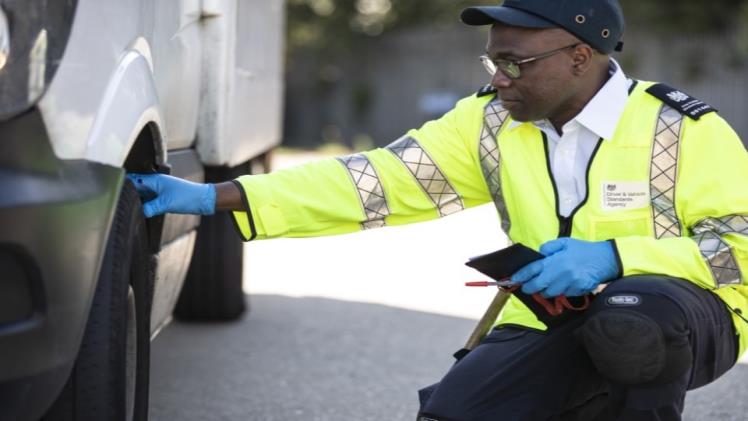Ah, the coveted secret to mastering the UK driving test! While there’s no magical formula, a concoction of preparation, practice, and the right mindset can greatly enhance your chances of success. Understanding the test’s structure is paramount. The initial phase involves acing the theory test, delving into the intricacies of the Highway Code, road signs, and hazard perception. Dive into practice tests, absorb the rules, and grasp the nuances of safe driving practices. This foundational knowledge forms the bedrock of your journey toward passing the test.
Next, the practical examination demands finesse in handling a vehicle. Start by honing your driving skills under various conditions and scenarios. Familiarize yourself with different road types, practice manoeuvres like parallel parking and three-point turns and refine your ability to anticipate hazards. Consistent practice behind the wheel, preferably with a qualified instructor, is invaluable.
Understanding the common pitfalls that lead to failure is crucial. Attention to detail is key—master those mirror checks, signal clearly and in good time, and maintain a steady pace appropriate for the road conditions. Being aware of your surroundings and confidently responding to traffic signs and signals demonstrate your competency. Simulating test conditions can mitigate nerves on the big day. Practice mock tests to get accustomed to the pressure and environment. Familiarize yourself with the area where the test is likely to take place, giving you an edge in navigating its quirks and challenges.
Maintaining a composed demeanor during the test is pivotal. Stay focused, remain calm, and trust in your preparation. Listen attentively to the examiner’s instructions, demonstrate confidence in your driving, and apply what you’ve learned without hesitation. Confidence in your abilities plays a significant role in the outcome. Reflect on feedback from mock tests or practice sessions. Identify areas that need improvement and work on refining them. Utilize the guidance and expertise of a skilled instructor to fine-tune your skills further.
Finally, embrace a positive mindset. Acknowledge that failure is a part of the learning process. Even if unsuccessful initially, learn from the experience, pinpoint areas for improvement, and persist in your efforts. Determination and perseverance often lead to eventual success. In essence, the secret lies in diligent preparation, consistent practice, a calm demeanor, and a positive outlook. While there’s no shortcut, investing time and effort in mastering both the theoretical and practical aspects of driving lay the foundation for success in the UK driving test.
Driving examiner strikes in the UK have been sporadic but impactful events that have occurred over the years, influencing the driving test schedules and bringing attention to various issues within the profession. These strikes, primarily undertaken by driving examiners, have revolved around grievances related to pay, working conditions, and changes in the examination process.
Historically, driving examiners in the UK have been employed by the Driving and Vehicle Standards Agency (DVSA) or its predecessor organizations. The DVSA oversees the process of conducting driving tests, ensuring that drivers meet the necessary standards for safe driving. However, disputes between the examiners and the agency have led to several strikes, disrupting the testing schedule and affecting countless learner drivers.
One notable instance of examiner strikes occurred in 2008 when examiners went on strike over proposed changes to their working hours and conditions. This strike led to the cancellation of numerous driving tests across the country, causing frustration and inconvenience to learner drivers who had been preparing for their tests.
Another significant strike took place in 2017, when examiners protested changes to the driving test format and the introduction of a new test. The changes included modifications to the test format, such as incorporating new maneuvers and elements to better reflect real-life driving situations. Examiners expressed concerns about the impact of these changes on their roles, workload, and the fairness of the test itself.
These strikes often highlighted broader issues within the profession. Driving examiners faced challenges such as heavy workloads, long hours, and issues related to job satisfaction and remuneration. The strikes were seen as a means for examiners to voice their concerns and push for improvements in their working conditions and treatment. The impact of these strikes was felt nationwide, with many learner drivers facing cancellations or delays in their driving tests. Such disruptions not only caused inconvenience but also had financial implications for those relying on passing their test for work or personal reasons.
The DVSA, on its part, aimed to address these issues through negotiations with the trade unions representing the examiners. These negotiations often involved discussions about pay raises, better working conditions, and resolving specific concerns raised by the examiners.
However, the strikes were not without criticism. Some argued that while the grievances of the examiners were valid, the strikes affected a large number of people who had invested time and money in preparing for their tests, causing significant inconvenience. In recent years, efforts have been made to prevent or mitigate the impact of potential strikes on learner drivers. Measures such as improved communication of strike dates, rescheduling tests promptly, and seeking alternative arrangements have been implemented to minimize disruptions.
The history of driving examiner strikes in the UK underscores the challenges faced by those responsible for conducting driving tests. It sheds light on the complexities of managing a system that impacts the mobility and aspirations of countless individuals seeking their driving licenses while addressing the concerns of the workforce responsible for conducting these tests. The strikes have, at times, prompted reforms and discussions aimed at improving the working conditions and fairness within the profession. To find out more about the UK driving test, you can visit this link:

